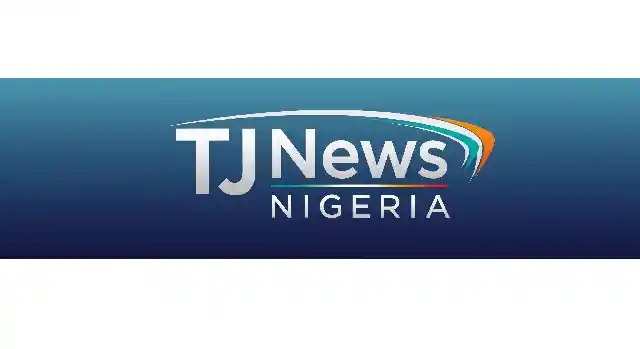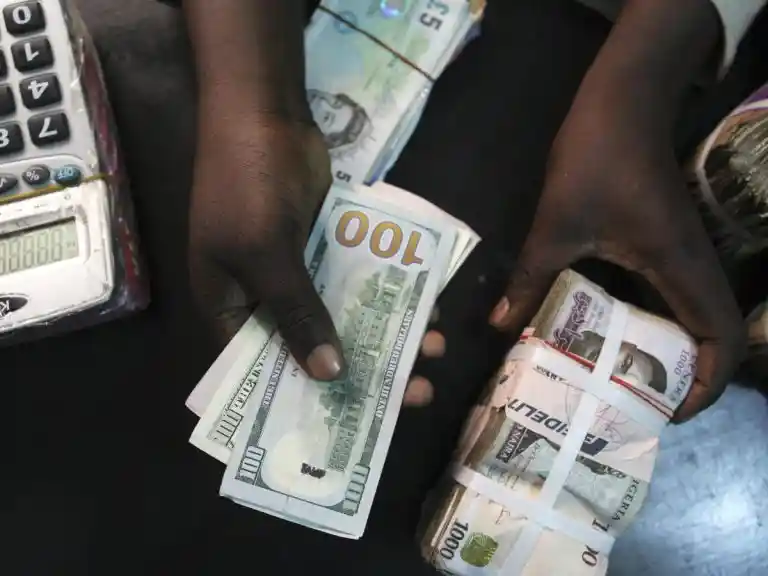The Nigerian currency continues to experience fluctuations in the foreign exchange market, with the black market exchange rate for the United States Dollar (USD) against the Nigerian Naira (NGN) reflecting persistent pressure on the economy.
As of Wednesday, September 10, 2025, the dollar is trading at an average of ₦1,515 per USD on the buying side and ₦1,530 per USD on the selling side in the parallel market. These figures are based on rates gathered from Bureau de Change (BDC) operators and independent currency traders in Lagos, Abuja, Port Harcourt, and Kano.
TJ News Nigeria reports that the official rate quoted by the Central Bank of Nigeria (CBN) currently stands at ₦1,506.5 per USD, showing a margin of approximately ₦18.5 between the parallel and official markets. This persistent gap continues to raise concerns among financial experts about Nigeria’s foreign exchange policy and supply constraints.
Pay Attention To: Black Market Dollar (USD) to Naira (NGN) Exchange Rate Today – September 9, 2025
Overview of Today’s Exchange Rates
The following rates represent a snapshot of the currency market as of September 10, 2025:
| Market Type | Buying Rate (₦ per USD) | Selling Rate (₦ per USD) |
|---|---|---|
| Black Market (Aboki FX) | ₦1,515 | ₦1,530 |
| Official CBN Rate | ₦1,506.5 | ₦1,506.5 |
Rates may vary slightly depending on location and trader demand.
Parallel Market Trends
Currency traders in Lagos and Abuja confirm that demand for foreign exchange remains high, particularly from importers and international business owners seeking dollars for trade settlements.
According to independent BDC operators, the price of the U.S. dollar has remained consistently above ₦1,500 for weeks, with no sign of major appreciation. In Port Harcourt and Kano, the rates are similar, with some dealers quoting slightly higher prices due to transportation costs and supply limitations.
Analysts suggest that while the Central Bank of Nigeria has maintained some level of stability in the official window, the black market remains the preferred option for many businesses, largely due to limited dollar availability in the official market.
Factors Driving the Naira’s Performance
Several macroeconomic factors continue to influence the value of the Naira in both the official and parallel markets:
- Forex Scarcity:
Limited access to foreign exchange in the official market forces businesses and individuals to source dollars from the black market, creating excess demand. - Import Dependence:
Nigeria remains heavily dependent on imports for essential goods, including fuel, machinery, and consumer products, which drives up dollar demand. - Inflation and Economic Uncertainty:
Persistent inflationary trends, coupled with economic reforms, have led to higher living costs and increased pressure on the Naira. - Policy Measures:
Recent policy adjustments by the CBN, including interventions in the official forex market, have slowed Naira depreciation but not eliminated the gap between market segments.
Impact on Businesses and Consumers
The persistent gap between official and parallel market exchange rates affects multiple sectors:
- Importers: Businesses importing raw materials and finished goods face higher costs, which are often passed down to consumers.
- Small Enterprises: SMEs reliant on forex for international purchases struggle to remain profitable, leading to potential job losses.
- Travelers and Students Abroad: Nigerians paying tuition fees and living expenses abroad continue to feel the pinch as black market rates remain elevated.
- Inflation: Rising costs of imports contribute to inflation, worsening the economic challenges faced by households.
Official Market Interventions
The CBN has implemented several measures aimed at stabilizing the Naira, including:
- Forex Sales to BDC Operators: Periodic interventions to supply forex directly to Bureau de Change operators.
- Monetary Policy Adjustments: The CBN has raised benchmark interest rates multiple times this year to curb inflation.
- Encouragement of Non-Oil Exports: Efforts are ongoing to diversify Nigeria’s forex earnings through increased agricultural and manufacturing exports.
Despite these measures, challenges persist, and the black market remains a significant part of Nigeria’s currency ecosystem.
Historical Context
The Naira has experienced a prolonged depreciation over the past decade. In 2015, the exchange rate hovered around ₦200 per dollar, while by 2020, it had crossed ₦400. In the years following, rising inflation, declining oil revenue, and global economic shocks—such as the COVID-19 pandemic and oil price volatility—accelerated currency devaluation.
By 2025, the dollar exchange rate consistently surpassed ₦1,500 in the black market, underscoring Nigeria’s economic struggles and the pressing need for structural reforms.
Government Efforts and Economic Reforms
The Nigerian government has pledged to stabilize the economy through a combination of fiscal and monetary policies. Reforms include:
- Removal of Fuel Subsidies: A move to free up revenue for infrastructure development.
- Digital Payment Reforms: Initiatives to promote financial inclusion and reduce reliance on cash transactions.
- Foreign Investment Incentives: Policies to attract foreign direct investment (FDI) and boost economic growth.
Economic analysts emphasize that while these steps are necessary, long-term stability will depend on reducing Nigeria’s dependence on oil revenues, diversifying the economy, and strengthening manufacturing.
What Nigerians Should Know
For individuals and businesses, staying informed about daily exchange rates is critical to financial planning. Experts advise:
- Monitoring Trends: Keep track of both official and parallel market rates for accurate budgeting.
- Diversifying Investments: Consider alternative assets to hedge against currency depreciation.
- Using Official Channels: Where possible, source forex through official means to minimize exposure to black market risks.
Key Takeaway
As of September 10, 2025, the dollar trades for ₦1,530 in the parallel market while the official rate stands at ₦1,506.5. The gap between the two markets underscores ongoing foreign exchange scarcity and Nigeria’s broader economic challenges. Policymakers face mounting pressure to address forex shortages, inflation, and structural imbalances to stabilize the Naira in the long term.






